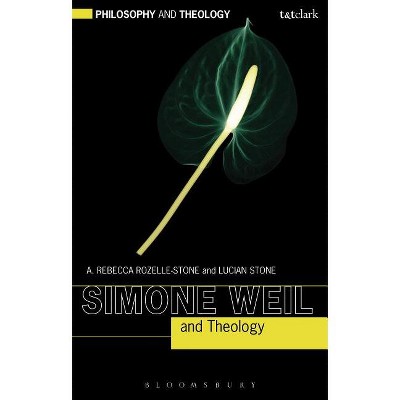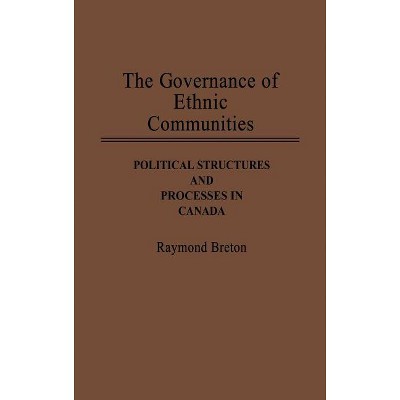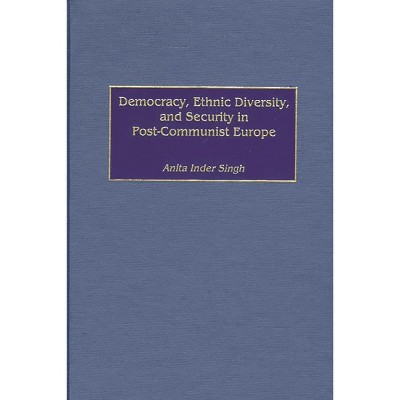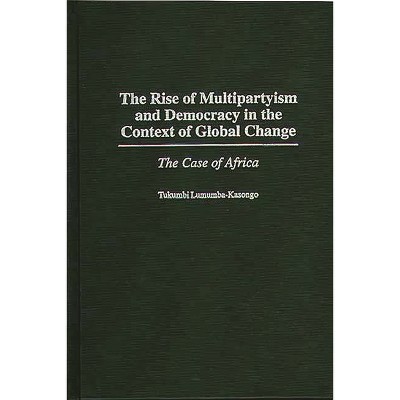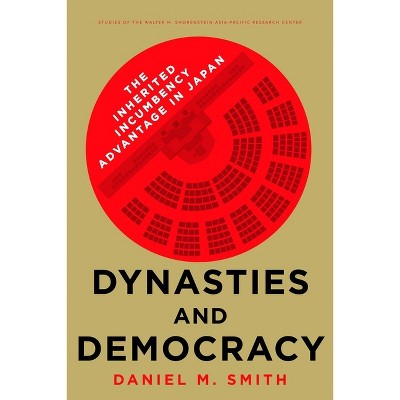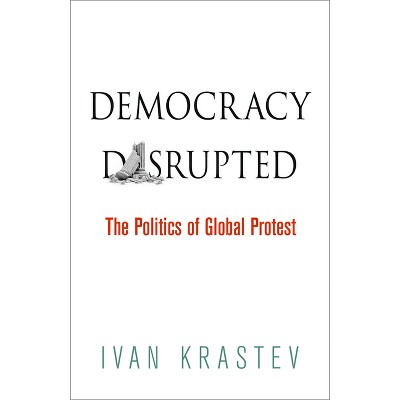Sponsored

Importing Democracy - by Raymond A Smith (Hardcover)
In Stock
Sponsored
About this item
Highlights
- This unique work brings together a comparative analysis of American institutions, a tour of the world's political systems, and a manifesto for reform, offering insights on democracy that could revitalize U.S. politics and government.
- About the Author: Raymond A. Smith, PhD, is adjunct assistant professor of political science at Columbia University and New York University in New York City, NY.
- 264 Pages
- Political Science, Comparative Politics
Description
About the Book
This unique work brings together a comparative analysis of American institutions, a tour of the world's political systems, and a manifesto for reform, offering insights on democracy that could revitalize U.S. politics and government.
The United States has always taken pride in being a model of democracy. However, presidential systems are more closely associated with dictatorship and single-party rule in other parts of the world like Latin America and Africa. Indeed, democratic practices more often flourish in parliamentary systems, and the United States remains the only advanced, industrialized democracy with a presidential system instead of a parliamentary organization.
Each of the 21 chapters in Importing Democracy: Ideas from Around the World to Reform and Revitalize American Politics and Government highlights a feature of a foreign nation's political system that is absent in the U.S. system. Chapters also draw on brief case studies from countries as diverse as Australia, Brazil, Iceland, India, Germany and South Africa. Importing Democracy explores whether American politics and government might be enhanced by incorporating a multiparty system, a simplified Constitutional amendment process, parliamentary practices of accountability, proportional representation elections, presidential votes of "no confidence," restraints on judicial power, and much more.
- A comprehensive glossary defines key terms used throughout the text
- Conclusion charts provide a rank ordering of the proposed reform and a suggested "blueprint" for change to U.S. politics and government
Book Synopsis
This unique work brings together a comparative analysis of American institutions, a tour of the world's political systems, and a manifesto for reform, offering insights on democracy that could revitalize U.S. politics and government.
The United States has always taken pride in being a model of democracy. However, presidential systems are more closely associated with dictatorship and single-party rule in other parts of the world like Latin America and Africa. Indeed, democratic practices more often flourish in parliamentary systems, and the United States remains the only advanced, industrialized democracy with a presidential system instead of a parliamentary organization. Each of the 21 chapters in Importing Democracy: Ideas from Around the World to Reform and Revitalize American Politics and Government highlights a feature of a foreign nation's political system that is absent in the U.S. system. Chapters also draw on brief case studies from countries as diverse as Australia, Brazil, Iceland, India, Germany and South Africa. Importing Democracy explores whether American politics and government might be enhanced by incorporating a multiparty system, a simplified Constitutional amendment process, parliamentary practices of accountability, proportional representation elections, presidential votes of "no confidence," restraints on judicial power, and much more.Review Quotes
"While there is no shortage of American politicians, media figures, and others ready to offer their thoughts on "exporting democracy," it is rare to find Americans willing to examine the lessons of democratic practices from outside the proverbial "shining city on the hill" and consider 'importing democracy.' This volume by Smith (political science, Columbia U.) is the exception to the rule, discussing major changes modeled on other countries' democratic experiences that offer the
potential to expand popular participation in governance, better balance the promotion of majority rule with the protection of minority rights, improve the effectiveness of government while maintaining democratic limits to government power, and/or advance individual liberty and social equality. The focus of the case studies is on political institutions and processes, rather than policy. Examples of the 21 cases discussed include the Italian experience with proportional representation, Chile's experience with runoff elections for executive offices, Brazil's introduction of compulsory voting, Switzerland's system of national referenda, Turkey's limitation of the executive's legislative and judicial powers, New Zealand's acceptance of legislative overrides of judicial opinions, and South Africa's constitutional social and economic protections." --Reference & Research Book News
representative and effective government. ... Recommended." --Choice
About the Author
Raymond A. Smith, PhD, is adjunct assistant professor of political science at Columbia University and New York University in New York City, NY.Shipping details
Return details
Frequently bought together


Trending Non-Fiction




